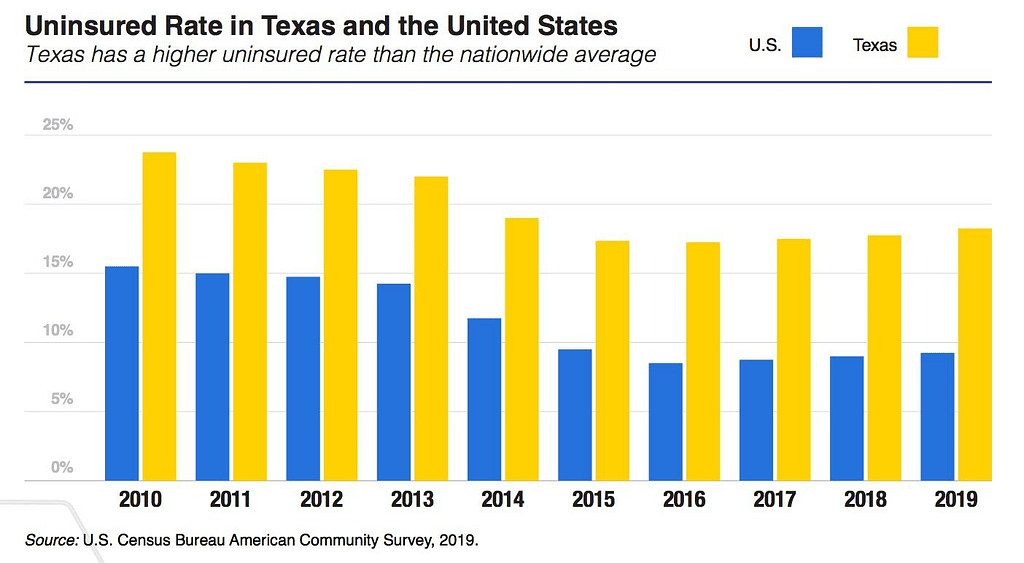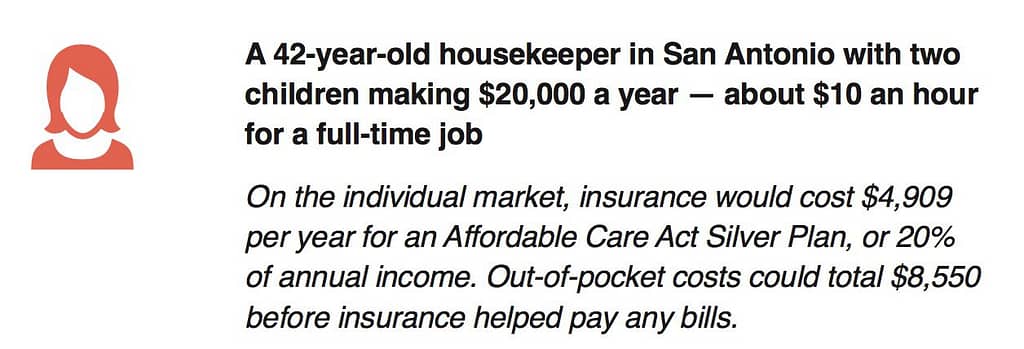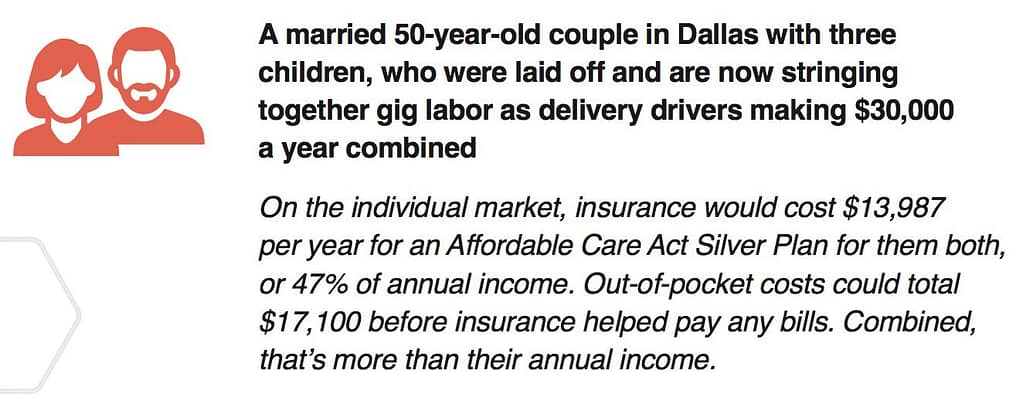Health care in Texas is broken. For many, insurance is unaffordable — to the point of being unobtainable.
For others, even those with insurance, the costs of premiums and care are unsustainable.
Average annual premiums to cover a family on employer plans (the most common way insured Texans are covered) are over $20,000 — that’s one-third of the average Texas household’s total annual income.
For other Texans, the price of care and availability of insurance coverage aren’t the only barriers; rather, a lack of hospitals, doctors, and access to care prevents many Texans from receiving the care they need when they need it.
The size and scope of these problems can be overwhelming, and each problem needs to be addressed. But one problem, in particular, stands out when comparing Texas to the nation’s 49 other states: Texas has the largest uninsured population — by far — and the highest uninsured rate.

Five million Texans lack insurance — nearly one in ve Texans — which limits their ability to access affordable preventative care and often forces costs to be absorbed by the public via safety net programs.
For many of these Texans, policy choices made at the state and federal levels have left them with no realistic path to coverage.
Consider the following hypothetical examples of full-time workers in essential jobs:



Because of policy choices made by the Texas government, individuals like these have no path to affordable insurance: they would not have access to either Medicaid or individual market subsidies.
For these Texans — several of the hundreds of thousands falling into this “coverage gap” — our state policy choices have eliminated their realistic choices. However, our state government has the power to give Texans more choices. While these Texans are most in need of help, all Texans could benefit from more affordable coverage options.
Developing affordable health insurance solutions for the growing number of uninsured is critical so that families and individuals can:
- Access the medical care they need and not skip or postpone medical treatment because of costs. Three out of every four Texans without health insurance report skipping care because of costs, according to Episcopal Health Foundation research.
Reduce the threat of significant medical debt from accessing emergency care. According to a 2018 survey published by the Financial Industry Regulatory Authority, Texas has 6.2 million adults with unpaid medical bills, or 29.0% of the population.
Fortunately, Texas has options. This year, Texas legislators have a multitude of policy combination scenarios for helping to connect more Texans with health insurance – over 500, in fact.
To help, we created The Health Coverage Policy Explorer. The Health Coverage Policy Explorer allows all Texans to explore alternatives from each of these sets and combine different options to find ways of maximizing federal funding streams and covering more Texans. Give it a try and learn more about Texas’ options for connecting more Texans with health insurance.
